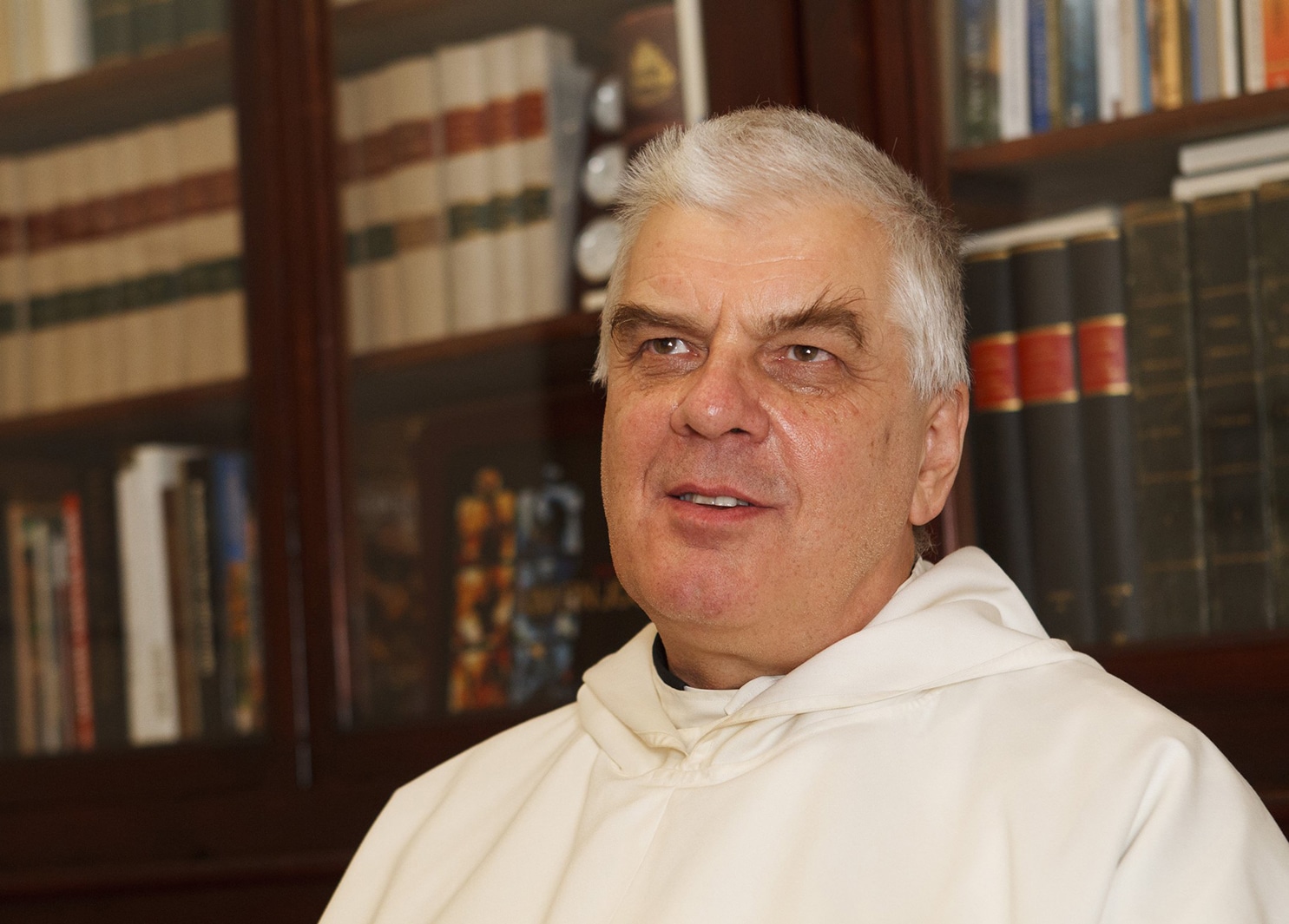- Feb 5, 2002
- 166,616
- 56,251
- Country
- United States
- Faith
- Catholic
- Marital Status
- Married
- Politics
- US-Others
In the contemporary confusion, people are no longer clear about basic moral values,” says Father Wojciech Giertych, O.P., Theologian of the Papal Household. For Father Giertych, the theology of St. Thomas Aquinas can help the Church address that confusion.
Appointed by Pope Benedict XVI in 2005, Father Giertych serves the Church as an advisor on theological matters, a role that marries deep spiritual insight with intellectual rigor. A member of the Polish Dominican province, Father Giertych is a renowned expert in moral theology. He teaches at the Pontifical University of St. Thomas Aquinas (the Angelicum) in Rome and is a member of the prestigious Pontifical Academy of St. Thomas Aquinas. In this interview with Our Sunday Visitor, Father Giertych shares his perspectives on the enduring value of St. Thomas Aquinas and the evolving landscape of Catholic theology.
This interview has been edited for length and clarity.
In the contemporary confusion, people are no longer clear about basic moral values because of how social life is functioning today; people are lost. I think very soon in the Universal Church, there will be a wild cry asking for a speculative theology which precisely names the truth because to live, we have to base ourselves on something solid. Now, you cannot marry if you’re not sure about the definition of marriage. You cannot struggle against temptations if you don’t know the difference between a sin and a virtue. You cannot make complex decisions in the realms of bioethics or in the realms of politics or economics if you don’t know the difference between goodness and evil. The mind has to grasp these fundamental issues and then this gives solid foundations. I think Aquinas is very much valid today and will be for decades and centuries to come.
Continued below.

 www.oursundayvisitor.com
www.oursundayvisitor.com
Appointed by Pope Benedict XVI in 2005, Father Giertych serves the Church as an advisor on theological matters, a role that marries deep spiritual insight with intellectual rigor. A member of the Polish Dominican province, Father Giertych is a renowned expert in moral theology. He teaches at the Pontifical University of St. Thomas Aquinas (the Angelicum) in Rome and is a member of the prestigious Pontifical Academy of St. Thomas Aquinas. In this interview with Our Sunday Visitor, Father Giertych shares his perspectives on the enduring value of St. Thomas Aquinas and the evolving landscape of Catholic theology.
This interview has been edited for length and clarity.
Our Sunday Visitor: Do you think that Saint Thomas Aquinas still has a significant role to play in Catholic theology today?
Father Wojciech Giertych, OP: The suggestion “still” and the word “today” give the idea that the truth is historically relative, and so today the truth may be true, and tomorrow it may no longer be true. But this is absolute rubbish and impossible. What is true, is true. Thomas Aquinas is a great Dominican medieval theologian who, to the maximum, developed the mind to know both natural truths and, in the realm of theology, accept the revealed truths that God has made known to us. He tried to think about them, bring out their intelligibility, grasp what we can know of the mysterious truths, and formulate them in precise articles of faith. And this is permanently valid.In the contemporary confusion, people are no longer clear about basic moral values because of how social life is functioning today; people are lost. I think very soon in the Universal Church, there will be a wild cry asking for a speculative theology which precisely names the truth because to live, we have to base ourselves on something solid. Now, you cannot marry if you’re not sure about the definition of marriage. You cannot struggle against temptations if you don’t know the difference between a sin and a virtue. You cannot make complex decisions in the realms of bioethics or in the realms of politics or economics if you don’t know the difference between goodness and evil. The mind has to grasp these fundamental issues and then this gives solid foundations. I think Aquinas is very much valid today and will be for decades and centuries to come.
Our Sunday Visitor: This fall marked the 30th anniversary of Pope St. John Paul II’s encyclical Veritas Splendor. There’s been a lot of discussion about that document and the nature of moral theology. What do you think is the legacy of Veritas Splendortoday?
Continued below.

Why Aquinas matters now, according to the papal theologian
Father Wojciech Giertych, O.P., Theologian of the Papal Household, shares his perspectives on the enduring value of St. Thomas Aquinas and the evolving landscape of Catholic theology.
 www.oursundayvisitor.com
www.oursundayvisitor.com
